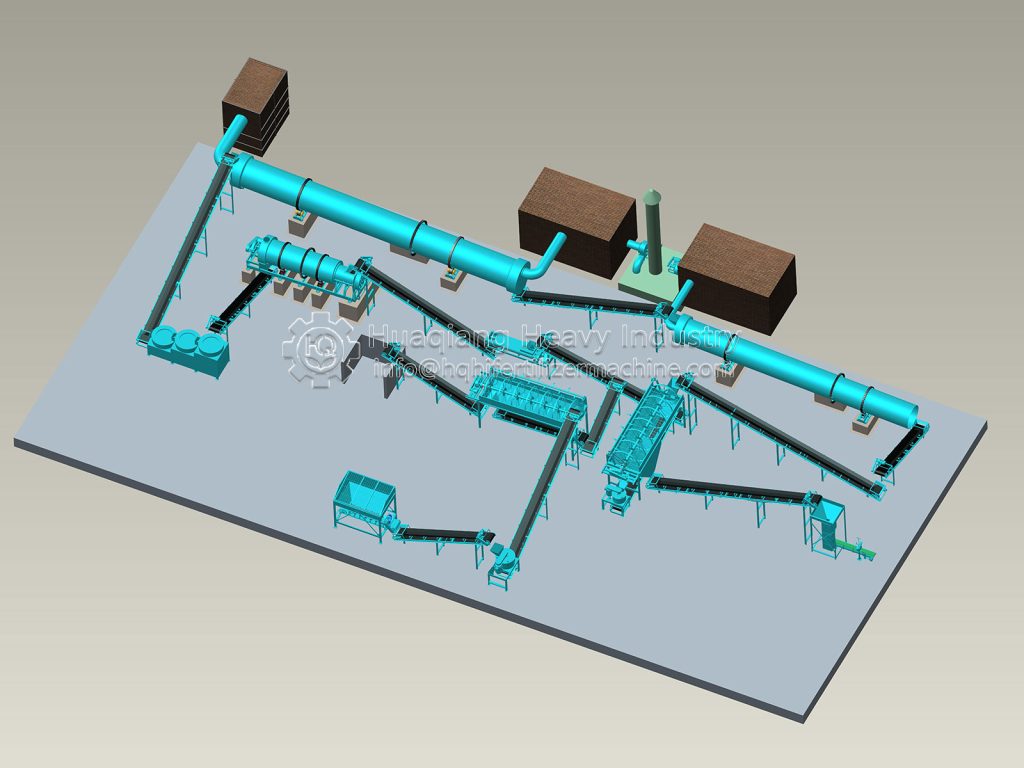Amid the wave of green agricultural development, bio-organic fertilizers are becoming a new trend in the fertilizer market due to their eco-friendliness and high nutrient efficiency. Fertilizers produced by specialized bio-organic fertilizer production lines exhibit distinct characteristics through their unique production processes, providing strong support for sustainable agricultural development.

A broad range of raw material sources and environmental friendliness are key features of these production lines. These production lines utilize organic waste, such as livestock and poultry manure, crop straw, garden waste, and food waste, as their primary raw materials. These wastes, which could otherwise pose an environmental burden, are transformed into nutrient-rich organic fertilizers through the production line’s pulverization, composting, and fermentation processes, effectively turning waste into treasure. Compared to traditional chemical fertilizers that rely on non-renewable resources, this production line not only reduces waste disposal costs but also mitigates the pollution caused by indiscriminate storage of organic waste, aligning with the concept of circular agriculture.
A comprehensive nutrient profile and biological activity are key features of these production lines. During the production process, the bio-organic fertilizer production line precisely controls fermentation temperature, humidity, and microbial strain ratio to preserve nutrients such as organic matter, amino acids, and vitamins in the raw materials, while also promoting the proliferation of beneficial microorganisms (such as Bacillus subtilis and lactic acid bacteria). When applied to the soil, this type of fertilizer not only provides crops with slow-release, long-lasting nutrients, preventing the rapid nutrient loss associated with chemical fertilizers, but also improves the soil’s microbial community structure through beneficial microorganisms, enhancing soil aeration and water and nutrient retention. Long-term use can effectively alleviate soil compaction and improve soil fertility.
The green production process and high product safety are also prominent features. The bio-organic fertilizer production line utilizes high-temperature aerobic fermentation technology, which effectively kills pathogens, insect eggs, and weed seeds in the raw materials, reducing the risks of fertilizer use. Furthermore, the production line uses no chemical synthetic additives. Exhaust gas generated during production is treated in biological filters before meeting discharge standards, and wastewater is recycled through a recycling system to reduce waste, ensuring a green and environmentally friendly process from production to use. In addition, the biological organic fertilizers produced have undergone strict testing, and the heavy metal content is far lower than the national standard. After application, it will not cause secondary pollution of the soil, ensuring the quality and safety of agricultural products and meeting consumers’ demand for green and healthy agricultural products.